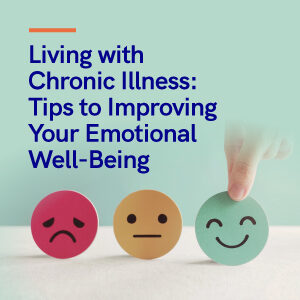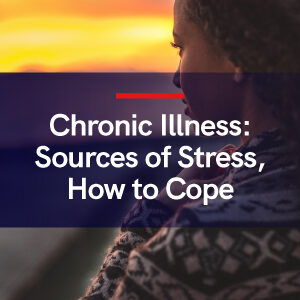Disease doesn’t just change an individual’s life, it affects the entire family. If we are in a romantic relationship, our partner and the relationship itself will feel the impact. In essence, the relationship has the diagnosis. Having grown up with MS, all of my relationships have been in the context of illness (except for the past few years since I am now thankfully disease-free – you can visit kaleyz.com to read the full story). In over two decades as a patient advocate, there is a ton I could say on this topic. But what I want to focus on most in this blog is communication and managing relationships after diagnosis.
Communicating Symptoms: A Tricky Business
Many couples find communicating challenging for a number of reasons. For the person with a diagnosis, it can be hard to ask for help. It can feel like a loss of independence if their partner is always checking on them. Sharing a symptom might create a larger reaction from the partner than the person feels, and most often, we don’t want to feel like a burden. For the partner, it can feel very uneasy to know when to offer support, or when it might be overbearing. It can feel scary to know what’s actually going on, or like you don’t know how to help, and you don’t want to be the person who reminds your beloved of how un-well they are. As you can see, this is a tricky business. It can feel like at any moment someone might step on a mine. For this reason, I recommend having ground rules for how to communicate about symptoms and when and how to ask or offer help. Be flexible about these rules and tweak them as you go to learn what works well for the relationship. Remember the relationship has the diagnosis, not just one of you.
Patient: How Do I Get My Needs Met Without Always Talking About Being Sick?
This is a very common issue in managing relationships after diagnosis. Moreover, the body hears everything we say and our words get implanted in our cells so if we are always talking about being sick, or describing our symptoms, we can actually further illness. So how do you get your needs met without constantly talking about how terrible you feel? I suggest code words. Your partner does not actually need to know every detail of what you are feeling (unless you need medical attention or it’s an emergency). By knowing that you aren’t feeling “yourself” they can show up in a different way to support you. Talk together about what types of code words or phrases you’d like to use to tip off your partner of a symptom you are experiencing. For example, maybe pain is particularly bad one day and it’s in the right leg. You might say something like “you know the mean neighbor that comes to visit? Today he’s visiting my right leg, just letting you know.” Even better is to make it something that feels more positive and uplifting like “I hadn’t seen the puppy Fido in a while, but he came over today, sat right on my leg and wouldn’t move!”
An even better approach is to learn to ask for help without saying why. When I began my healing journey, my partner at the time, David, wanted to be part of the journey while still being able to take care of me when I was having symptoms. I learned to ask for what I needed without saying why. For example, “I need to stay in tonight,” or “can you massage my arm?” Normally I would have finished those sentences with “I’m having really bad fatigue,” or “I’m in so much pain.” I realize it’s a big adjustment but once you do it a few times, you will find it’s very freeing. Additionally, it will strengthen the bond between you to receive help and support without needing a reason.
Partner: When I Check On Them, They Feel Like I’m Reminding Them of Being Sick or Treating Them Differently. How Do I Check In Without Making It Worse?
It can be easy for the person with the diagnosis to feel like they need to be the one to communicate when a symptom comes up. And in turn, I find that often the healthy partner thinks it’s on them to anticipate and know what the other person needs. It is impossible for either of you to be two steps ahead. As a result, when a partner is worried, it can make the newly diagnosed person uncomfortable and feel like they are being treated differently. Because I never had to adjust to being in a relationship after diagnosis, every time I started dating someone in my 20s, I was clear that I didn’t want him to always be asking me how or what I was feeling, and I promised to always communicate what was going on so that they wouldn’t feel in the dark. (I can’t say I always kept my promise, but I tried!) There is no rule about who should communicate what and when. It will honestly save several arguments if you let go of that impression right now. The one rule about communication is that you do communicate as often as possible and as openly as possible in the process. I like to call it “over-communicating.” Again, as I stated above, communicate about ground rules. Find out when it’s OKAY to check in, and how your partner will tell you that something has come up. Again, be flexible so you can adjust the rules as you go.
We Love Each Other But This Gets Really Overwhelming
Introducing diagnosis to a relationship changes everything, and I know that managing relationships after diagnosis can be tough. You can weather the storm and actually create an even better relationship through it as long as you are each taking care of yourselves. For the relationship to succeed in a healthy and vibrant way, it is crucial that each of you are doing your inner work so that something like offering a hand up the stairs does not seem like an assumption of weakness which can then lead to a huge fight.
One of the biggest stumbling blocks in managing relationships after diagnosis is falling into victimhood. It is very easy for either of you to begin to feel like this “horrible thing is happening to you” and without realizing it, slip into a victim mindset. Being in victim mode will wreak havoc on any relationship. I have been there myself and understand the need for empathy, sympathy, and just bad days where you do feel like the world is falling apart. But, it’s important to each have individual professional emotional support so that your world paradigm does not become one of victimhood. That is the fastest way to ruin a relationship or establish codependency. To preserve your future, be sure to invest in your emotional well-being from day one and also find ways to compassionately help each other out of victimhood when it does pop up.
Can I Still Make Him/Her Happy? Taking Responsibility for Your Feelings
A challenge for any relationship is how easily we impact each other’s emotional states. It’s just natural. We all know how it feels when someone comes home angry – you can feel it in the air. In any relationship, a good therapist will teach you that each of you is responsible for your own feelings and you are not responsible for each other’s feelings. This relationship has the additional nuance of illness so it is even more important to adhere to this tenant.
On a final note, while managing relationships after diagnosis massive challenge, I do believe that relationships can thrive even after the addition of illness. If you can keep the lines of communication, you will experience an even stronger relationship than before with more intimacy, trust, and love.


